Myth: Horses Don't Need Salt in Cooler Weather

Debunking the Myth: The Critical Importance of Salt and Electrolytes for Horses in Cooler Weather
As the seasons change, the needs of our equine friends evolve. It's widely recognized that electrolytes play a crucial role during the hot summer, but their importance during cooler weather is often underestimated. This post delves into why maintaining electrolyte balance is essential for your horse's health and hydration as temperatures drop.
What are Electrolytes?
Electrolytes serve as the unsung heroes of your horse's biological processes, orchestrating vital functions essential for optimal health and performance. These indispensable minerals, including sodium, potassium, chloride, calcium, and magnesium, act as conductors within the body, facilitating nerve impulses, muscle contractions, and maintaining fluid balance.
In essence, electrolytes are the backbone of your horse's physiological well-being, ensuring smooth communication between cells and enabling the seamless orchestration of bodily functions. Understanding their significance is paramount for maintaining your horse's health and vitality, regardless of the season.
Why Electrolytes Matter in Cool Weather?
Many believe electrolytes are only needed during warm weather or after intense exercise. However, horses lose electrolytes through sweat in cooler weather, albeit less visibly, which is equally significant. Additionally, horses may drink less in cooler temperatures, increasing the risk of dehydration and electrolyte imbalance.
What is a Reduced Thirst Response?
Horses naturally experience a reduced thirst response as temperatures drop, leading to decreased water intake. This physiological adaptation can be misleading, as it may not accurately reflect the horse's hydration needs. Despite a diminished desire to drink in cooler weather, horses lose fluids and essential minerals through various metabolic processes. This discrepancy can increase the risk of dehydration and electrolyte imbalance, making it crucial for horse owners to monitor water intake and consider strategies, such as providing warmed water or enhancing palatability with electrolyte supplements, to encourage drinking.
What is Continued Sweat Loss?
The assumption that horses cease to sweat in cooler temperatures is a common oversight. Even with a drop in the mercury, horses engaged in physical activity or those wearing winter blankets can still sweat, albeit less noticeably than in the heat of summer. This sweat loss contributes to the depletion of vital electrolytes and fluids essential for muscle function and overall health. A thick winter coat can further mask the extent of sweat loss, underscoring the need for attentive care and the potential supplementation of electrolytes to replenish what is lost during exercise or under blankets.
How to Recognize the Signs of Electrolyte Imbalance?
Electrolyte imbalances can severely impact a horse's health and performance. Being vigilant about the following signs can help you act promptly:
- Fatigue or Lethargy: The horse appears unusually tired, showing a lack of interest in its surroundings and activities it usually enjoys.
- Muscle Weakness or Trembling: You might notice decreased muscle strength or trembling during movements or after exercise, indicating a potential imbalance.
- Changes in Eating or Drinking Habits: A reduced appetite or water intake can indicate electrolyte issues.
- Dry Mucous Membranes: The gums and other mucous membranes should be moist; dryness indicates dehydration, often related to electrolyte imbalance.
- Poor Capillary Refill Time: Pressing on the horse's gums should result in the color returning within two seconds. A delayed response can indicate dehydration and electrolyte issues.

How to Integrate Electrolytes into Your Horse's Diet
Integrating electrolytes into your horse's diet might sound like a task suited for the pros, but it's pretty simple and something any horse owner can do easily. Whether prepping for cooler weather or just aiming to maintain optimal health for your equine companion, here's a friendly guide to making electrolytes a regular part of your horse's routine.
Recommendation 1: Regular Access to a Salt Block
Horses need to have access to a salt block regularly. Salt blocks give horses the sodium and chloride they may not get enough of from their regular diet, especially in cooler weather when their thirst response is reduced. This simple measure can encourage horses to drink more water, promoting natural electrolyte balance and preventing dehydration.
Recommendation 2: Med-Vet Electro-Cell
Considering the critical role of electrolytes in your horse's health throughout the year, Med-Vet Electro-Cell is formulated to support optimal hydration and electrolyte balance. This supplement ensures your horse remains healthy, energetic, and well-hydrated, even as temperatures drop.
Critical Benefits of Med-Vet Electro-Cell
- Balanced Electrolyte Formula: It replenishes essential minerals lost through sweat.
- Supports Hydration: Encourages water intake, reducing the risk of dehydration.
- Versatile Use: Ideal for all seasons, ensuring your horse's electrolyte levels remain balanced year-round especially in high-stress environments such as showing.
Recommendation 3: Tailoring to Your Horse's Needs
Every horse is unique, and their needs can vary based on activity level, weather, and overall health. While starting with the recommended dosages on products like Med-Vet Electro-Cell is a significant first step, be bold about consulting with your veterinarian. They can offer personalized advice to ensure your horse gets the right balance of electrolytes tailored to their specific needs.
Recommendation 4: Making It a Habit
Integrating electrolytes into your horse's diet should feel like a smooth process. With the right products and a bit of knowledge, it becomes just another part of your daily routine, like feeding and grooming. And the benefits? They're worth their weight in gold. A well-hydrated horse with balanced electrolytes is a happy, healthy horse ready to enjoy life, regardless of the weather.
Act Now:
Don't wait for signs of electrolyte imbalance to affect your horse's health and performance. Visit Equine Balanced Support to learn more about Med-Vet Electro-Cell and its benefits for your horse, regardless of the season. Choose the right electrolyte supplement to ensure your horse stays hydrated, healthy, and ready to perform.





Leave a comment